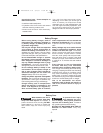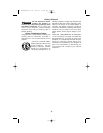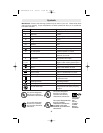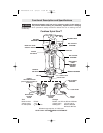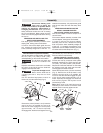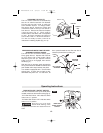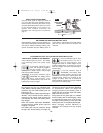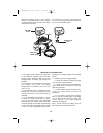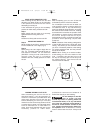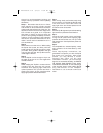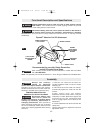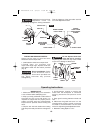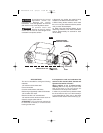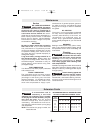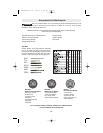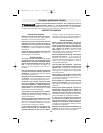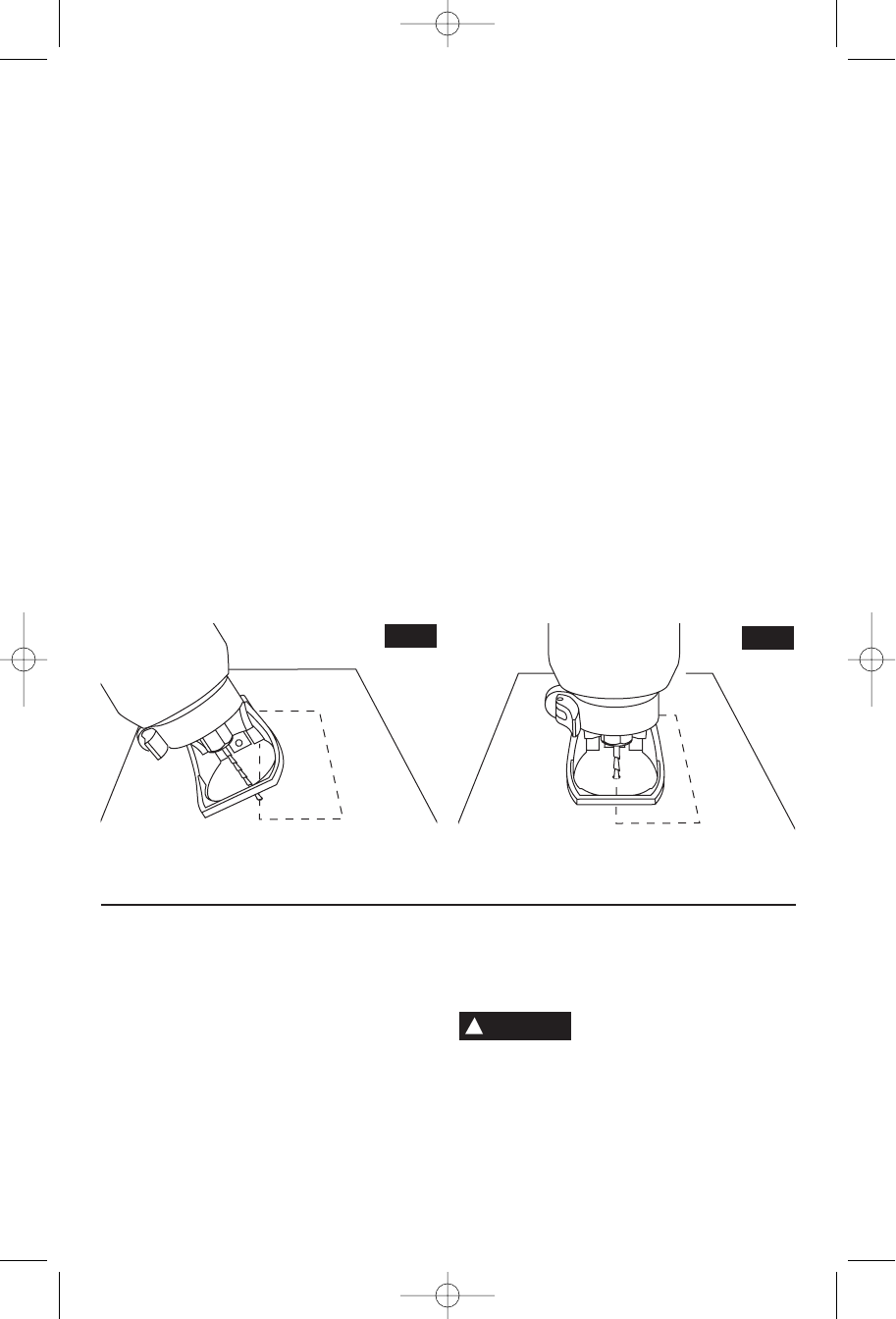
-15-
MAKE A FEW PRACTICE CUTS
After installing the Zip Bit into the tool and
adjusting your depth guide, you should make
a few practice cuts with the tool before
attempting an actual job.
A few exercises will give you the necessary
practice to make clean, professional cuts.
Step 1
Make certain that the collet nut is securely
tightened before turning the tool on.
Step 2
Hold the tool firmly and turn the tool ON.
IMPORTANT USER TIP
Step 3
While holding the tool firmly, insert the Zip Bit
into the material at a 45° angle (Fig. 9).
Step 4
Slowly bring it to a 90° angle to begin the cut
(Fig. 10). The base guide should be flush to
the material surface. For all materials
(EXCEPT cutting around outlet boxes in
drywall), steer the tool in a clockwise
direction with slow, steady pressure to make
the cut.
Step 5
After completing your cut, turn off the tool
and carefully remove it from the material.
Do not attempt to use this tool to make cut-
outs around any fixture or opening which has
live electrical wires, or any wall which may
have live electrical wiring behind it, as the Zip
Bit could conduct current to the tool, creating
an electrocution hazard for the operator. Shut
off breakers or remove fuses to disconnect
the circuit. Always hold the tool by its
thermoplastic housing, and always wear eye
protection when operating a Spiral Saw
power tool.
NOTE: Because of the rotating cutting action
of the Zip Bit, there will be a slight pull when
cutting. The slower you cut, the more control
you have. Excessive pressure or fast cutting
will cause excessive heat and may shorten
the life of the Zip Bit.
NOTE: When cutting on a vertical surface,
avoid ending your cut at the bottom of the
hole. If possible, start and end your cut at
the top so the scrap part will not drop onto
the rotating Zip Bit. Turn the tool off and
remove it from the material.
FIG. 9
FIG. 10
MAKING DRYWALL CUT OUTS
After assembling the bit into the tool as
described earlier, it will be necessary to
review the instructions provided below and
make some practice cut-outs with this tool
before attempting an actual job. The best
method is to take some scrap pieces and nail
or screw them in place over wall studs which
have an electrical box or other feature in
place. A few such exercises will give you the
necessary practice to make clean,
professional cutouts around whatever is
behind the drywall you are installing.
Do not attempt to use this
tool to make cut-outs
around any fixture or opening which has
live electrical wires, or on any wall which
may have live electrical wiring behind it,
as the bit could conduct current to the
tool, creating an electrocution hazard for
the operator. Shut off breakers or remove
fuses to disconnect the circuit. Always hold
!
WARNING
RZ 2610925600 9-05 9/1/05 11:04 AM Page 15



